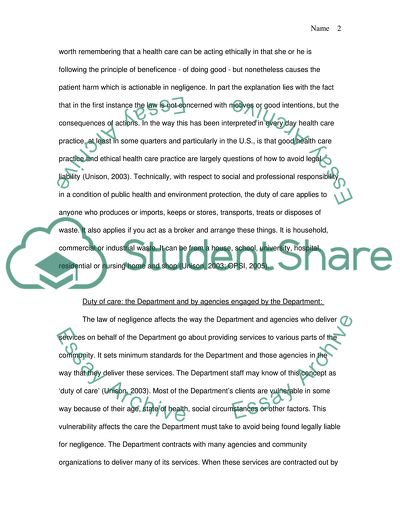Cite this document
(Duty of Care: Public Health and Environment Coursework, n.d.)
Duty of Care: Public Health and Environment Coursework. https://studentshare.org/health-sciences-medicine/1709693-define-and-discuss-the-term-duty-of-care
Duty of Care: Public Health and Environment Coursework. https://studentshare.org/health-sciences-medicine/1709693-define-and-discuss-the-term-duty-of-care
(Duty of Care: Public Health and Environment Coursework)
Duty of Care: Public Health and Environment Coursework. https://studentshare.org/health-sciences-medicine/1709693-define-and-discuss-the-term-duty-of-care.
Duty of Care: Public Health and Environment Coursework. https://studentshare.org/health-sciences-medicine/1709693-define-and-discuss-the-term-duty-of-care.
“Duty of Care: Public Health and Environment Coursework”. https://studentshare.org/health-sciences-medicine/1709693-define-and-discuss-the-term-duty-of-care.


